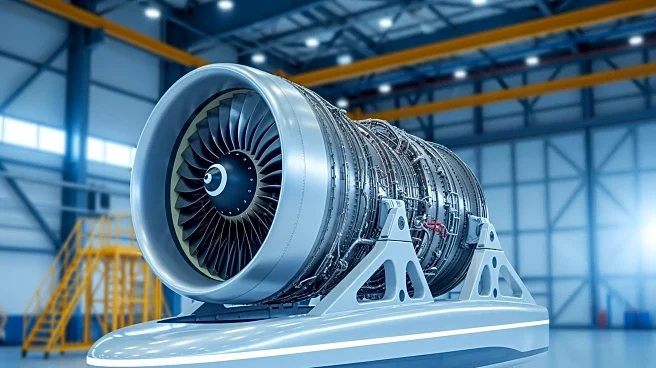What's Happening?
GE Aerospace is considering deploying its 747-400 flying testbed equipped with a GE9X engine to the Middle East in early 2026. The plan involves basing the 747 in the region for several weeks to simulate airline operations and verify the GE9X's operability
with recent upgrades. This campaign aims to validate results from dust-ingestion ground tests conducted at GE's site in Peebles, Ohio. The tests use a talcum powder-like mixture resembling Middle Eastern dust conditions. GE is preparing to file final reports to the FAA for extended twin-engine operations (ETOPS) approval for the GE9X on the Boeing 777-9.
Why It's Important?
The deployment of the 747 testbed to Dubai is crucial for ensuring the GE9X engine's reliability in harsh environments, particularly in the Middle East. Successful validation of dust-ingestion tests and ETOPS certification will enhance the engine's marketability and operational readiness for the Boeing 777-9. This could lead to increased confidence among airlines operating in regions with challenging environmental conditions, potentially boosting GE's market share in the aerospace industry.
What's Next?
GE Aerospace plans to submit final certification reports to the FAA by the end of the year, with ETOPS approval expected by early 2026. The company will continue dust-ingestion tests and prepare for the 747 testbed's deployment to Dubai. These steps are part of GE's strategy to ensure the GE9X engine meets rigorous performance standards before its entry into service.















